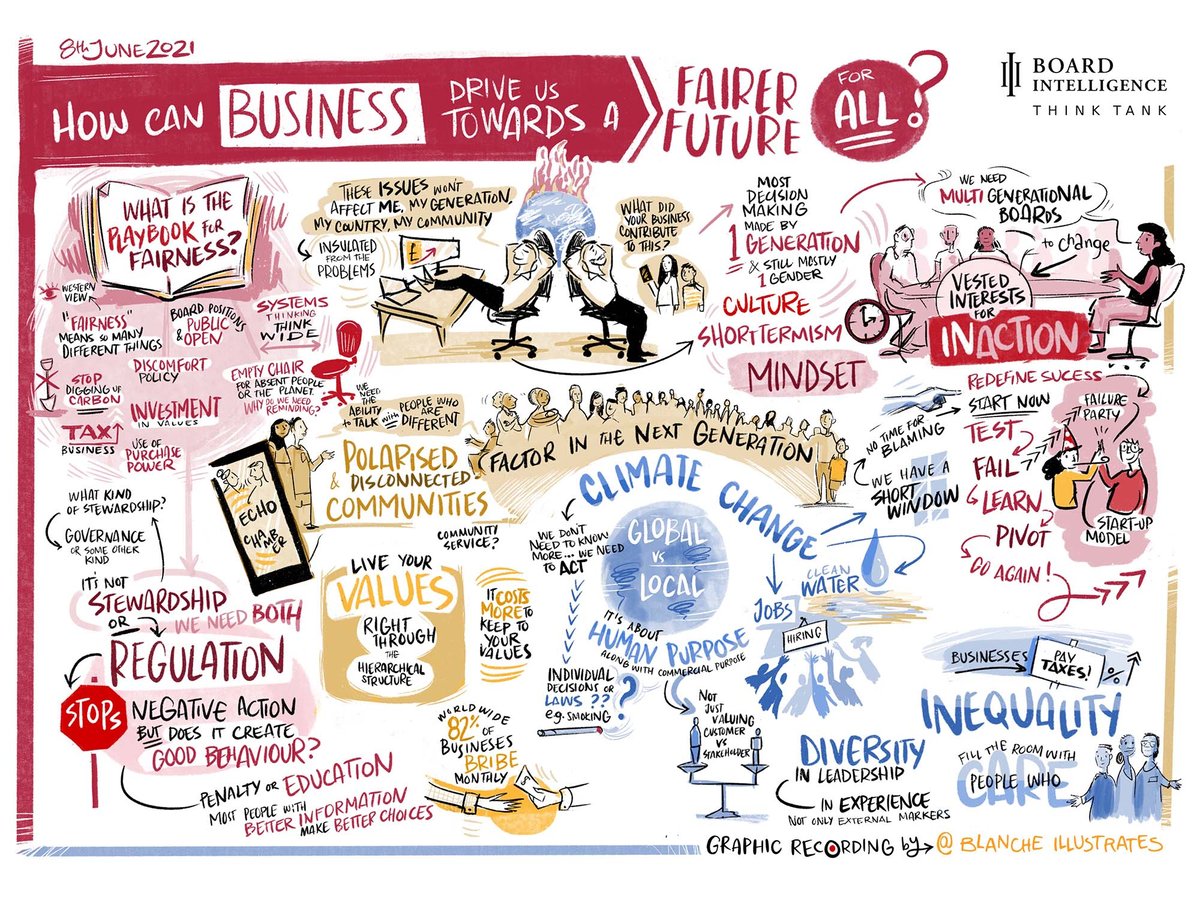Sarah Flannigan is the chair of Riverford Organic, Yeo Valley Farms, and Sawday’s. She’s also a NED at Kew Gardens, Inspired Energy, and the Institute of Physics Publishing.
Here, Sarah reflects on chairing a Think Tank roundtable and lays down a challenge to her peers.
My challenge to business leaders
As board members, it’s easy to dismiss “ego” as something that doesn’t affect us.
Few of the people we work with exhibit the traits we usually associate with ego. These days, rare are the dictatorial CEOs or the directors on personal crusades.
But ego can take over a board in more subtle ways. And when it does, it insulates well-meaning decision makers from the outside world and gets in the way of the fairer future they wish to create.
So, after chairing a roundtable of the Board Intelligence Think Tank where we explored this issue, here’s my challenge to my peers: Put aside the false belief that you know better and start truly listening to all your stakeholders.
Boards have to grapple with difficult choices. Whether it’s turning away lucrative clients that conflict with your values, or deciding how much hard-won profit to allocate to net-zero projects, I’m a firm believer in the wisdom of crowds. You’re more likely to get answers that are closer to what’s right for your organisation and society at large if you ask a wide group of people — like your staff — than if you only ask a small and rather privileged group — like your fellow directors.
“Put aside the false belief that you know better and start truly listening to all your stakeholders.”
Sound unrealistic — or even at odds with how boards fundamentally operate? Here are two practical steps you can take to get there:
-
The first step is to engage. With your employees, the key is to avoid over-reliance on complicated annual surveys that only benefit the board. Pulse check surveys, for example, provide real-time insight. Simply ask your people every month to give a mark out of 10 for how they’re feeling and add an optional free-text field for whatever’s on their minds. You’ll be surprised to see common issues bubble up.
It’s about having an adult-to-adult relationship with your staff, and putting faith in their ability to wrestle with complicated issues and come up with sensible solutions. It can be incredibly revealing: you suddenly discover that the things you’ve been wrangling over in the boardroom are far from being the biggest problems for everyone else.
-
But listening is not enough on its own. So, take the second step and publicly commit to being bound by what you learn — and be prepared to confront some uncomfortable truths, because what’s fair to one group may be unfair to another.
Take the issue of salary top-ups for furloughed staff for example. The board of one of my companies believed the fairest solution was to top up those on furlough so everyone was on full pay. But we put it to the staff, who instead defined “fair” as only those still having to work in a high-pressured, short-staffed office receiving 100% pay.
In another of my organisations, we have representatives from the staff council join the board every quarter. These interactions are regularly the most enlivening part of the meeting, but to ensure real cut through, the council is invited to come with at least one “big ask” of the board. They regularly skewer us with knotty provocations to which we, as a board, must then meaningfully respond. It’s a powerful tool for dismantling any creeping sense of corporate ego.
Leaders can feel that not having all the answers is a sign of weakness. But sometimes, admitting that you may be missing something important, or laying out the pros and cons when there’s a range of possible approaches and simply asking “What do you think?” can be a sign of strength — one that’ll create more engagement and be fairer all round.
What we learnt by adding a seat to the table
Every Board Intelligence Think Tank roundtable features an unexpected guest, invited to bring a different viewpoint to the conversation. On this occasion, we heard from Lizzie Beale, a youth ambassador.
I’ve changed the way I think as a result of what Lizzie said about testing decisions based on the communities we would want our grandchildren to grow up in. When I’m especially busy, I apply the “five-year test” that my mother taught me. I ask myself: when I look back in five years’ time, will I think, “I’m really glad I stayed up to 1 a.m. finishing that report?” If the answer is “No”, I close my laptop and go to bed. I’ve now adapted this to the boardroom with the “three generations test”, where I ask my colleagues, “What will people in three generations’ time think about the conversation we’re having? How will they judge us?”
Similar tests could be used as the basis for a “fairness playbook” — a set of loose questions that you could apply to outcomes when scenario planning. “Is this better or worse for our community, the planet, our customers, our staff? And who might say in a few generations’ time, ‘This isn’t fair?’” That would be a powerful tool.
Click here to read the full report on our roundtable findings.



